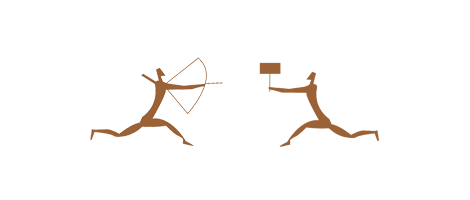WP1: The cultural meaning of hunting
- the human dimension
Objectives:
To investigate meanings attributed to hunting by different social groups in different localities

About the cultural meaning of hunting
Hunting is a prime example of a widespread human activity that generates conflicts that apparently reach far into the socio-cultural realm, where widespread misconception of the opponent is a central part of the conflicts. The struggle over hunting seems to be embedded in tensions that originate deep in the structure of modern society and in contemporary processes of social change, where the interpretation of hunting is closely linked to culture patterns and value systems.
Studies suggest that both opposition to, and defence of, hunting can be seen as expressing archetypical positions in a cultural struggle over human relations to nature. The two extremes are usually depicted as the dedicated hunter versus the animal rights activist, both standing stiff-necked on opposite sides. In between there are landowners, sheep farmers, hikers, parents, dog owners, wildlife managers etc; hunter or not, no one is left with an unbiased view on hunting.
In spite of this, hunting in modern societies has received limited attention from the social sciences, and few studies contribute to the understanding of hunting as a social practice. A better understanding of the relationship between hunting and biodiversity, of the notion of what hunting implies, and to which extent connotations, perceptions and values of hunting can be influenced by a better understanding (of the relationship between hunting and biodiversity), needs to be investigated.
Thus, research on the wider meaning of hunting will address relevant topics and yield knowledge that is useful for practical policy and management purposes, and improved mutual understanding across the whole range of stakeholders.